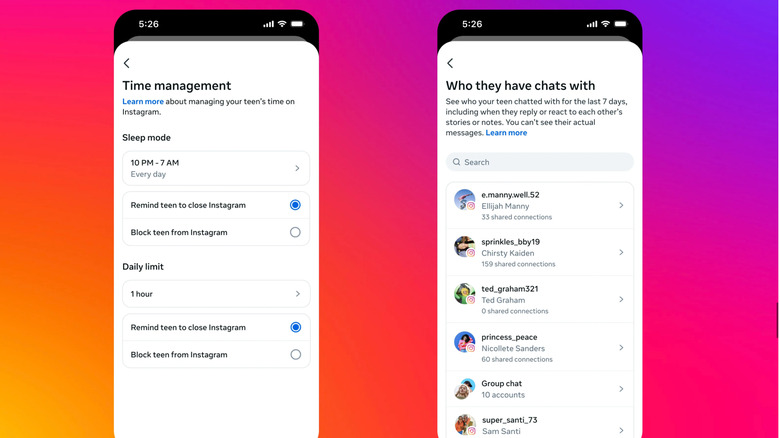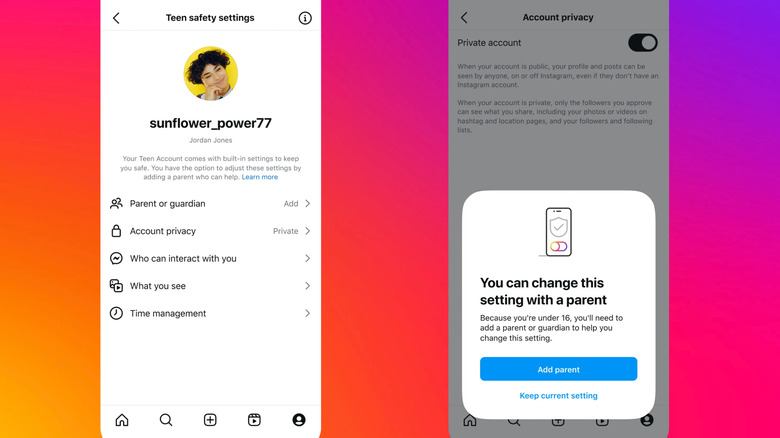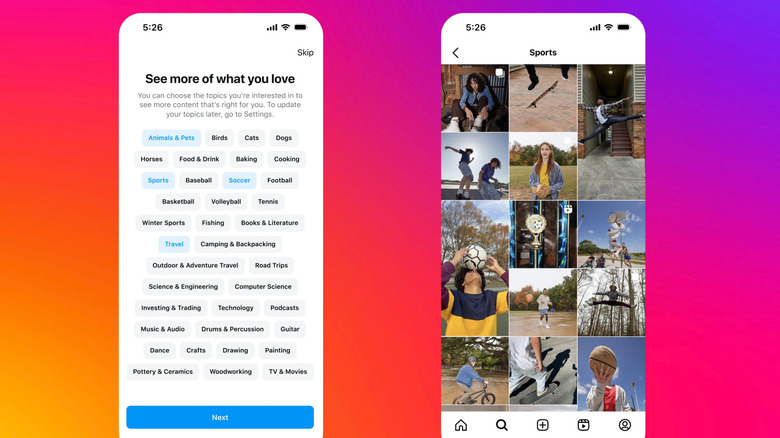Instagram Hopes These Drastic Changes For Teen Users Will Save It From Regulators
Earlier this year, Meta CEO Mark Zuckerberg issued a rare apology about the harms inflicted by social media platforms like Instagram. "I'm sorry for everything you have all been through," he said during a heated Senate hearing. Over the years, Meta has been repeatedly lambasted by non-profits as well as lawmakers over the platform's ill impact, especially over the role it plays at facilitating the online drug market and child grooming by predators. Today, Meta has announced a crucial change that it hopes will protect teens on the platform.
Moving forward, all accounts belonging to users under the age of 16 years will be pushed to the Teen Account status, which brings a set of restrictions aimed at safeguarding their online interests, especially when it comes to interacting with strangers online. To begin with, all Teen Accounts are set to private, which means content is only visible to their friends and family members in their follower group.
Similar restrictions apply to messages and mentions, as these accounts will only be able to receive messages from people they are mutually connected with. Going a step further, restrictions applicable for detecting harmful words and auto-blocking them will be enabled by default for all kinds of interaction requests, both public and private. This would be enforced not only for DM requests, but also for comments visible to Teen Accounts.
End to end protection
All the safety measures that come bundled with Teen Accounts are enabled by default. Notably, the protections don't only cover online interactions, but also the content Teen Accounts are exposed to. "Teens will automatically be placed into the most restrictive setting of our sensitive content control," says the company. These restrictions would apply to content appearing in the Explore and Reels sections. This tweak is crucial, given the platform's sordid history exposing young minds to violence and negative body image stereotypes.
In addition to minimizing bad exposure, Instagram is also paying attention to screen time. For teen accounts, a daily usage extending beyond one hour will automatically trigger a time limit notification. Moreover, app notifications will also be muted between 10 PM and 7 AM, a spell during which the account is put into sleep mode to minimize distractions. Aside from native interventions, Instagram is also handing over more controls into the hands of guardians.
As part of the supervision system, parents will be able to see who their teen ward has messaged over the past one week, even though they won't get access to message content. They will also be able to take a peek at the topics their teen children have chosen to interact with. Parents can also set a time limit on daily Instagram usage, and can also control what hour teens can use the app, even blocking access during nighttime.
When do these protections arrive?
All new Instagram sign-ups for users under the age of 16 will automatically be pushed under the Teen Account category. Starting next week, Instagram will also begin moving existing accounts into the Teen Accounts category wherever deemed applicable, and will also strengthen its age verification protocols. Most importantly, any change to Teen Accounts — such as extended time limit or interaction controls — will have to pass through parents or guardians. A teen user won't be able to directly bypass those measures.
"Designed based on parents' biggest concerns, Teen Accounts will automatically apply our strictest settings around who can contact teens and the content they see," says Instagram CEO Adam Mosseri. Instagram plans to launch Teen Accounts soon in select English-speaking countries, including the US, UK, Canada, and Australia within the next couple of months. This will be followed by an EU rollout later in 2024.
Global expansion will commence in January next year. Notably, the company also has plans to bring Teen Accounts to other Meta-owned platforms, as well. Though the company didn't drop any names, Facebook would appear to be the most likely candidate. Instagram's latest change entails one of the most comprehensive set of safety-first tweaks targeted at teen users, which also happens to be the biggest driver of engagement for the platform.


